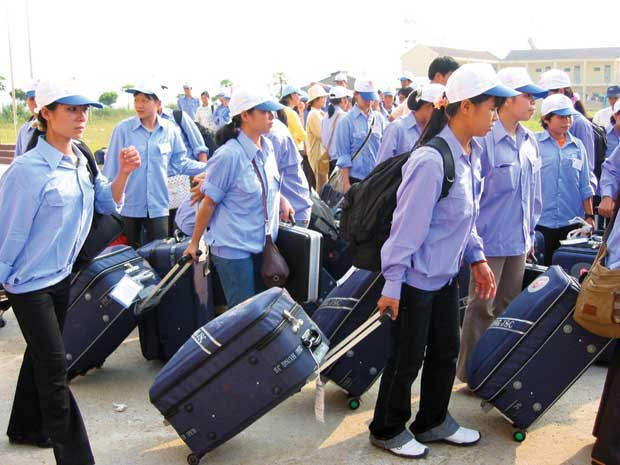 Society
Society


|
| The number of Vietnamese workers sending abroad is on the rise this year. — Photo zing.vn |
HÀ NỘI — More than 132,800 Vietnamese workers went working overseas during the 11 months of 2019, surpassing the year's target of 120,000, according to figures from the Việt Nam Association of Manpower Supply (VAMAS).
In November alone, nearly 14,800 Vietnamese went to work overseas, up nearly 2.6 per cent as compared to the same period last year.
Japan, South Korea and Taiwan accounted for 96.9 per cent of Việt Nam’s labour export market with 128,685 workers.
The number of workers to Japan has risen by 16.64 per cent compared to the same period last year.
Since the start of the year, South Korea has received 632 Vietnamese workers every month.
Meanwhile, the number of workers going to Southeast Asian countries, namely Malaysia, Singapore, the Philippines, Thailand and Cambodia, was only 584, down 46.72 per cent.
Labourers working in the Middle East accounted for only 1 per cent of the total.
Selecting workers to send overseas has been a focus of many businesses in recent years.
Vietnamese workers planning to work abroad need to improve their skills and foreign language proficiency to thrive, according to Nguyễn Gia Liêm, deputy head of the Department of Overseas Labour.
“Many labour export companies have organised courses on vocational training and foreign languages for employees who would work overseas,” Liêm told Thời Báo Kinh Tế Việt Nam (Vietnam Economic Review) newspaper.
The Government plans to revise the Law on Vietnamese Employees Working Overseas to promote labour exports, said Liêm.
“The law will adjust regulations on vocational and foreign language training for workers to take advantage of the current vocational training network as well as improve the skills of the Vietnamese workers,” Liêm said.
A regulation on foreign language proficiency will be added to the law, he said.
It was necessary to offer policies supporting vocational and foreign language training activities to provide essential skills for those who wanted to work abroad, Liêm said.
Labour export enterprises should send more employees to work in the high-tech sectors of developed countries to help create human resources for Việt Nam when they return, Liêm added. — VNS




